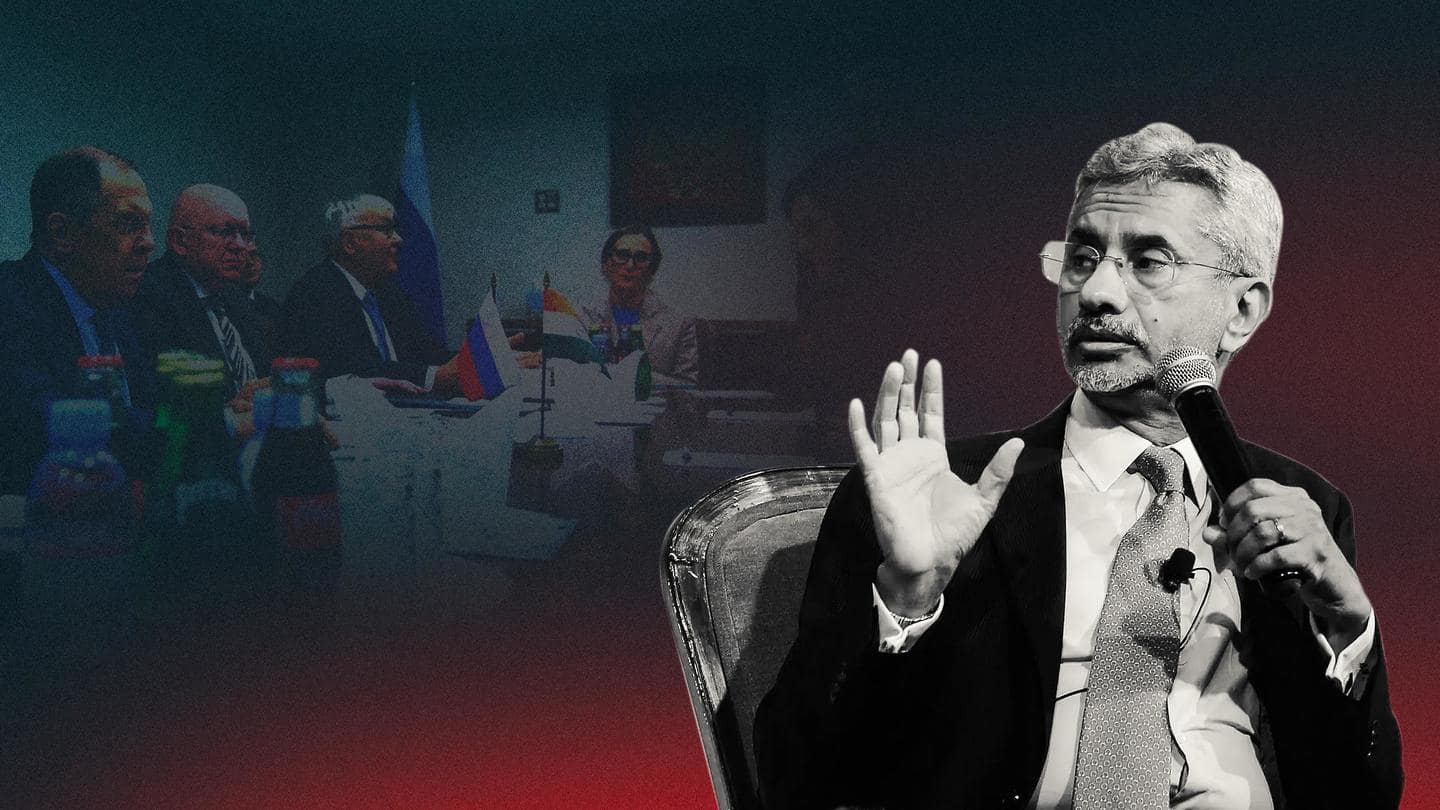
UNGA: India votes to reject Russia's secret ballot on Ukraine
What's the story
India on Monday voted against Russia's demand for a secret ballot on a draft resolution condemning Moscow's unlawful annexation of four Ukrainian territories in the 193-member United Nations General Assembly (UNGA). Notably, 107 nations, including India, have voted in favor of a public vote on a motion by Albania against Moscow's demand. While 13 member countries voted in Russia's favor, 39 others abstained.
Context
Why does this story matter?
The development comes hours after Ukrainian President Volodymyr Zelenskyy accused Russia of carrying out deadly airstrikes across his country. India's move to vote against Moscow at the UNGA is significant, as it has mostly abstained from voting on the Russia-Ukraine crisis at UN forums. Moreover, Western powers have been urging India to take sides in the conflict and distance itself from trading with Russia.
Details
EAM silent on India's stance on the Russia-Ukraine crisis
The move also comes a day after External Affairs Minister (EAM) S Jaishankar declined to reveal India's position on the Russia-Ukraine war on Sunday at a news conference in Canberra. However, he stated India has never endorsed the concept of "war." Even as Moscow's invasion of Ukraine approaches its eighth month and thousands have lost their lives, India has not openly denounced it yet.
United Nations
What happened at UNGA on Monday?
The draft resolution reportedly condemns Russia for its "illegal annexation" of Ukraine's Donetsk, Kherson, Luhansk, and Zaporizhzhia regions. While Russia wanted a secret ballot on this at the UNGA, 107 countries have voted against Moscow's demand, including India. Russia's demand was, however, supported by 13 countries, while 39 members abstained from voting. Russia and China were among the nations that didn't participate in voting.
Reaction
Furious Russia accused UN members of allowing 'fraud'
Following the rejection of its demand, Russia requested a review of the Albanian motion. However, the UNGA decided not to do so as 104 nations, including India, voted against such reconsideration; 16 voted in favor, while 34 abstained. Following this, Russia's Permanent Representative Vassily Nebenzia accused UN members of allowing "fraud." He alleged UNGA President Csaba Kőrösi also played a crucial part in it.
Comments
How did Russian UNGA representative react?
Nebenzia said, "We were not given the floor to make a point of order, our statement was distorted, and now UN member states are being robbed of their right to express their opinion freely." "This is an unprecedented manipulation undermining the authority of the General Assembly and the United Nations... In such circumstances, we opted to not take part in the vote," he said.
Response
Ukraine accused Moscow of 'terrorism'
Meanwhile, Ukraine labeled Russia a "terrorist state" following the UNGA meeting. "Russia has proven once again that this is a terrorist state that must be deterred in the strongest possible ways," AFP quoted Sergiy Kyslytsya—Ukraine's ambassador to the UN—as saying. "Unfortunately, you can hardly call for a stable and sane peace as long as an unstable and insane dictatorship exists in your vicinity."
Information
Hostilities in no one's interest: EAM spokesperson
Separately, in New Delhi, EAM spokesperson Arindam Bagchi stated the escalation of hostilities in the Russia-Ukraine conflict was not in anyone's best interest. He added India is prepared to help defuse the situation. "India is deeply concerned at the escalation of the conflict in Ukraine, including the targeting of infrastructure and deaths of civilians," he said, calling for an immediate end to the violence.
Details
Putin announced annexation of four Ukrainian territories last month
On September 30, Russian President Vladimir Putin formally announced the annexation of Ukraine's Donetsk, Luhansk, Kherson, and Zaporizhzhia regions over a month after issuing a referendum on the same. Notably, the announcement came a day after UN Secretary-General Antonio Guterres termed any annexation of a nation by the use of force as a violation of the Principles of the UN Charter and international law.